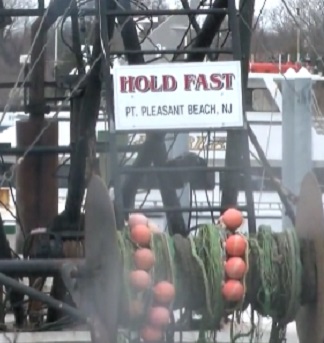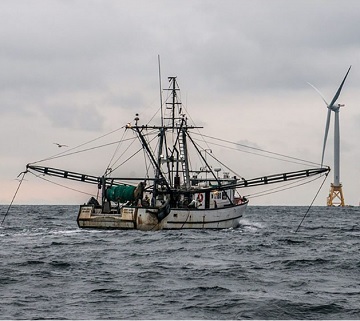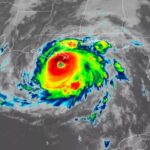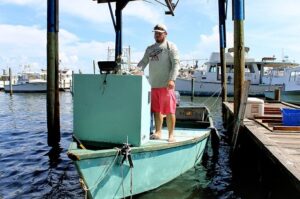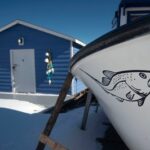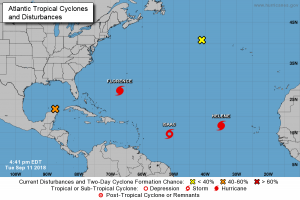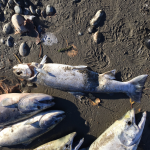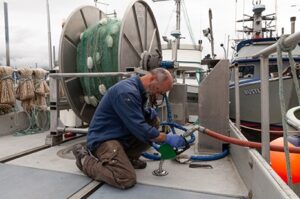Category Archives: Mid Atlantic
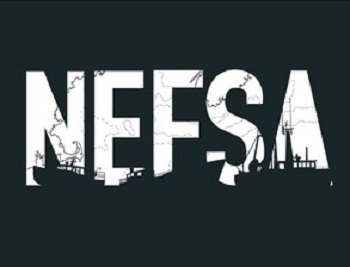
We’re Being Regulated Out of Business, New England Fishermen Say
“The New England fishermen are the most regulated fishermen in the world,” Jerry Leeman says. Leeman has been fishing in Maine his entire life. His father, grandfather, and great-grandfather were all fishermen. Federal regulations have now reduced the amount of haddock landings for commercial fishermen by more than 80%, Leeman said. The reduction in fish that fishermen are allowed to catch and “offshore wind development,” which is taking over “just under 10 million acres” of ocean, prompted Leeman, along with fisherman Dustin Delano, to create the New England Fishermen’s Stewardship Association to advocate for the region’s fishermen. Video, listen to the podcast >click to read< 07:55
Athearn Marine Agency Boat of the Week: 60′ Duckworth Steel Longliner/with permits, Cat 3406T Diesel,
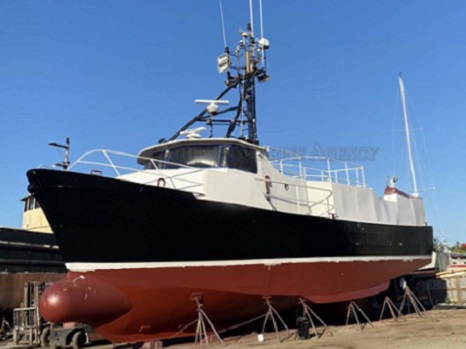 To review specifications, information, and 24 photos’, >click here<, To see all the boats in this series >click here< 11:45
To review specifications, information, and 24 photos’, >click here<, To see all the boats in this series >click here< 11:45
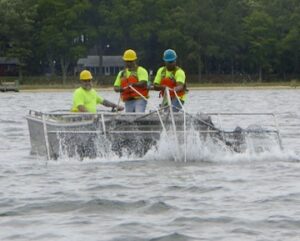
Omega Protein and Fishing Partner Ocean Harvesters Successfully Test Fish Spill Response Vessel
Ocean Harvesters, the exclusive fishing partner of Omega Protein, is continuing its commitment to responsible stewardship of the Chesapeake Bay with the deployment of a new response team and recovery vessel to more effectively respond to rare incidents like net tears and fish spills. As part of this effort, Ocean Harvesters, in cooperation with the Virginia Marine Resources Commission (VMRC), has successfully tested a skimmer vessel, which will arrive at the scene of a net tear and work to recover spilled fish from the surface that threaten shorelines. This vessel will begin operating in the Bay with this upcoming fishing season. photos, video, >click to read< 09:57

Biden admin under fire for offshore wind impacts on military operations
Earlier this week, Rep. Chris Smith, R-N.J., industry stakeholders and experts met with officials from the Government Accountability Office (GAO), a top federal watchdog agency, to discuss their concerns about offshore wind development. According to Smith, who represents a district along the Atlantic coast home to a naval weapons depot and where offshore wind projects have been proposed, more than an hour of the three-hour meeting was devoted to military impacts. The GAO recently agreed to investigate the wide-ranging effects of offshore wind development after Smith, fellow New Jersey Rep. Jeff Van Drew, House Natural Resources Committee Chairman Bruce Westerman, R-Ark., and several other lawmakers called for a probe. The investigation will look, in part, into wind turbines’ impact on military operations and radar. >click to read< 07:55
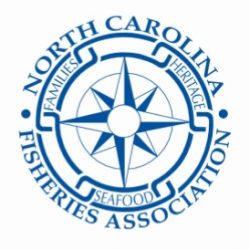
North Carolina Fisheries Association Weekly Update for June 26, 2023
A little over one week ago (June 16, 2023), a group of fishermen and fish buyers from North Carolina and Florida filed a lawsuit (South Atlantic Red Snapper Dead Discards Lawsuit) against the Secretary of Commerce (Secretary) and the National Marine Fisheries Service (NMFS) for declaratory and injunctive relief challenging the lack of accountability for dead discards of red snapper in the South Atlantic. The case outlines three claims where the Secretary and NMFS have violated the Magnuson-Stevens Act (MSA) and the Administrative Procedure Act (APA) by refusing to manage and address recreational dead discards and rebuild the South Atlantic stock of red snapper. >click to read< 16:54
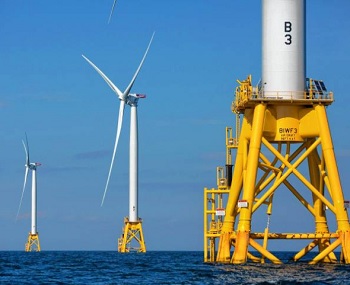
Offshore wind proponents, critics square off at Atlantic Shores hearing
Both proponents and critics of New Jersey offshore wind power generation faced off on Monday during a hearing for a project, that if approved, would construct up to 200 wind turbines less than 9 miles off the Jersey Shore. Atlantic Shores Offshore Wind, a project by the power companies Shell and EDF Renewables North America, promises to power about 700,000 homes in New Jersey through the construction of up to 200 ocean wind turbines. Supporters of the project say Atlantic Shores and other offshore wind projects are needed to quickly reduce greenhouse gas emissions, which are contributing to ocean warming, acidification, coastal flooding and stronger storms. But opponents of the project say it amounts to industrialization of the Atlantic Ocean and will irreparably harm a delicate coastal ecosystem. They argue Atlantic Shores will eliminate crucial scallop and oyster beds to commercial fishing and ruin the ocean view on which local tourism depends. Video, >click to read< 15:06
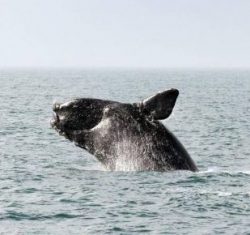
Rep. Carter introduces bill to prevent NOAA from implementing speed rule
U.S. Rep. Buddy Carter, R-1, is defending a bill he introduced Friday that would prohibit a federal agency from requiring more vessels to adhere to a low speed when approaching the East Coast during certain months of the year. House Bill 4323 calls for prohibiting the issuance of an interim or final rule that amends, updates, modifies or replaces the North Atlantic Right Whale Vessel Strike Reduction Rule until mitigation protocols are fully developed and deployed. If passed, the U.S. Department of Commerce, the parent agency of NOAA, would be required to develop and deploy technology to monitor Atlantic waters for right whales. >click to read< 07:53
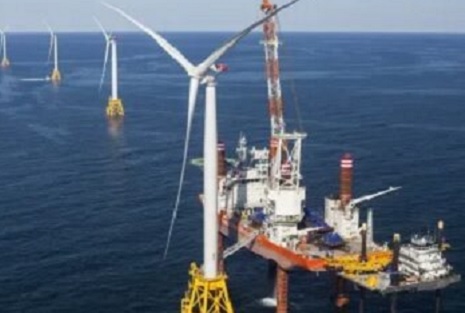
Oil Company con game exposed; the old switcheroo by Jim Lovgren
Oil companies developed techniques to not only locate oil and gas reserves thousands of feet below the ocean bottom, but to drill and recover them. Unfortunately, the tools used to locate oil reserves under the ocean floor, primarily seismic air gun arrays, have left a trail of dead sea creatures in its wake. Just like the US Navy, who for years denied the growing body of evidence linking military sonar usage to localized marine mammal strandings, the oil industry has denied any link of seismic research to the marine mammal strandings that invariably occur near their operations. Along comes Biden’s green new deal, and the east coast is now swamped with offshore research vessels using both sonar and seismic devises to map the sea floor and thousands of feet underneath it, for wind development. The same vessels in many cases that would have been involved with the 2012 proposed marine mammal massacre in search of oil reserves. These vessels are not only surveying the area in the lease site, but for many miles away from them, in many cases overlapping into other lease sites, or just mapping bottom that will never be available. Why? >click to read< 11:11
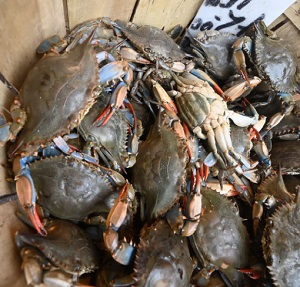
East Hampton fishing for stiffer laws against ‘organized crab crime ring’ stealing bushels of shellfish
Town officials are fishing for even stiffer laws in the war against “organized crab crime rings.” The tougher penalties are needed to turn the tide against “vans full of” out-of-towners bagging “bushels and bushels of shellfish out of Napeague Harbor” and other waterways including Georgica Pond, the town’s attorneys said. “They basically just start taking everything they can grab from the shallows and those two waters: from clams to scallops to conchs, hermit crabs, blue claw crabs. Pretty much grab any size of anything they can in sight,” said Chris Carillo, attorney for the town’s trustees. The night raiders employ a lookout to alert them to Marine Patrol officers and those who are caught don’t carry ID, and because it’s merely a violation, the offenders avoid being fitted for handcuffs, Carillo said. >click to read< 18:41
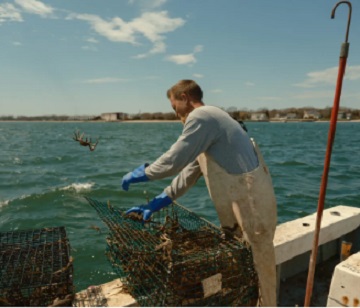
Peconic Bay Scallops are a legacy at risk
For more than 30 years, Tim Sweat has spent the early morning hours of winter on Peconic Bay. By noon on most days, he would collect thousands of pounds of scallops — enough to cover the daily cost of maintaining his boat, plus put aside some extra money for the holidays. But for the last four years, as bay scallops continue to die off at an alarming rate, he’s finished the season with little to show for his efforts. “I’ve spent most of my life out here on the water; fishing is my whole life. But the future is not looking very promising for the smaller boats like me,” Sweat said. “We’re struggling to make a living out here, things keep dying off.” >click to read< 13:33
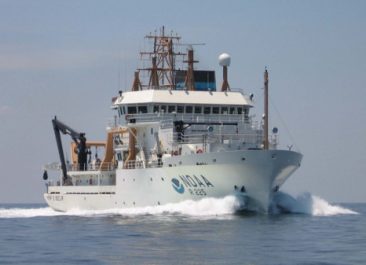
Fishermen To Replace NOAA With NEFSA Due to Reliance on Inaccurate Data to Set Catch Quota
NOAA which has the task of managing and safeguarding the nation’s marine resources, sets catch quotas to ensure sustainable fishing practices annually. However, it has been discovered from an investigation that the agency uses heavily outdated and incomplete information to estimate its fish and marine life population, and subsequently set fish catch quotas’ sets quotas for particular species based on data it collects from its research vessels. NOAA’s research vessel for the Northeast and the Mid-Atlantic is the Henry B. Bigelow, homeported in Newport, Rhode Island, U.S.A. A group called the New England Fishermen Stewardship Association (NEFSA), a new coalition of lobstermen, fishermen, and fishing-adjacent businesses was formed as a replacement due to the reported drawbacks of NOAA. >click to read< 10:5
Athearn Marine Agency Boat of the Week: 101′ Steel Shrimper, 95k capacity freezer hold, 3508 Cat Diesel
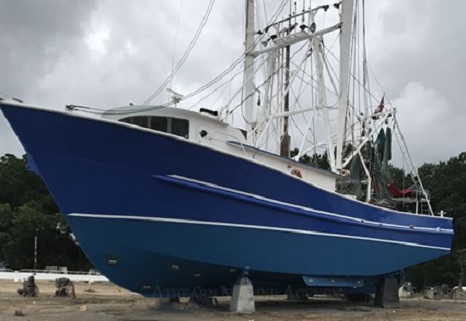 To review specifications, information, and 17 photos’, >click here<, To see all the boats in this series >click here< 12:25
To review specifications, information, and 17 photos’, >click here<, To see all the boats in this series >click here< 12:25
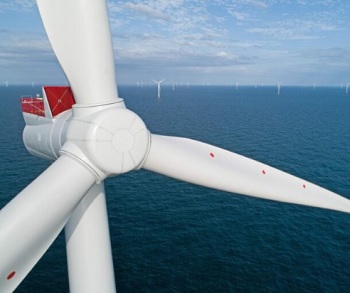
Offshore wind foes in New Jersey gathering force legally and politically
Opponents of offshore wind energy projects in New Jersey are gathering force legally and politically as they seek to snuff out the nascent industry. Within the last week, three residents groups sued New Jersey over a key approval of its first planned wind farm; the research arm of Congress agreed to investigate the impact of offshore wind on the environment and other areas; and lawmakers in two counties most heavily impacted by wind farms stepped up their efforts to block the projects. Save Long Beach Island, Defend Brigantine Beach, and Protect Our Coast NJ filed an appeal Friday in state Superior Court of New Jersey’s determination that the Ocean Wind I project is consistent with state coastal management rules. >click to read and comment< 08:55

GAO to investigate New Jersey ‘offshore wind industrialisation’
The Government Accountability Office (GAO), an independent congressional watchdog, has agreed to launch an investigation into the impact of the development of windfarms offshore New JerseyThe investigation will examine the potential effects of the development of offshore wind on the environment, fishing industry, military operations, navigational safety and other issues, said Representative Chris Smith (R-NJ). Representative Smith said the GAO would conduct an “aggressive, independent investigation” into what he claimed are the “ocean-altering impacts of the 3,400 offshore wind turbines slated for the Jersey shore” and “address concerns” that, he claimed, “the Biden Administration and Governor Murphy continue to dismiss. >click to read< 07:44
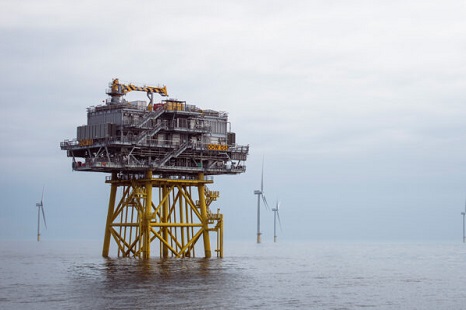
Offshore Wind Electrical Substations; The Secret, Silent Killers by Jim Lovgren
The marine mammal strandings that are taking place almost everyday along the US east coast are the most visible consequence of the Biden administration’s reckless disregard of all environmental safeguards that had been carefully crafted since the environmental movement started in the 1960’s. Embarrassingly, the cowards at the National Marine Fishery Service have stood by and watched as research vessels have been performing geologic surveys with high powered Sonar, and Seismic devises before they had their incidental take permits issued. They have also authorized over 100,000 level B takes of marine mammals, and that’s just for a few projects, as they fully expect the offshore wind factories to cause the extinction of the critically endangered Northern Right Whale. Just ask Sean Hayes, from the NMFS protected species department, whose observations were ignored by BOEM, hence an ESA violation. >click to read< 11:34
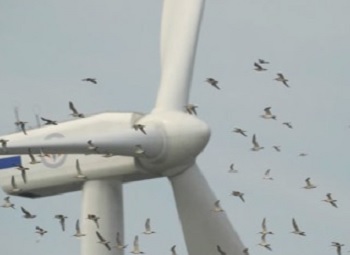
Global Wind Day, Environmental Nightmare
June 15 was Global Wind Day. Its European industry sponsors hope to promote the “power and possibilities” of wind turbines. But beware the Ides of June. Wind turbines have been sold to us as a means of reducing emissions, global warming and climate change. Although there are a lot of wind turbines installed around the world with many more seemingly to come, they have not reduced emissions, warming or climate change. And they offer no chance to do so, even if those things were desirable. Coming eight days short of the 35th anniversary of James Hansen’s Senate testimony that sent the world into global warming panic, it’s clear to anyone who cares to look that emissions have nothing to do with recent warming. >click to read< 08:55

Government Watchdog Agrees to Probe Effects of Offshore Wind Turbines
Following a request from a group of Republican congressmen, the Government Accountability Office (GAO), an independent watchdog, has agreed to conduct an investigation into the environmental effects of offshore wind turbines, which the Biden administration has increasingly supported. The effort was spearheaded by Representative Chris Smith (R., N.J.), who sent a letter to the GAO’s comptroller requesting information about the effects in the North Atlantic Planning Area, which extends from Maine to New Jersey. Of particular interest is whether wind turbines will cause economic and marine-life problems affecting commercial fishing. >click to read< 07:38
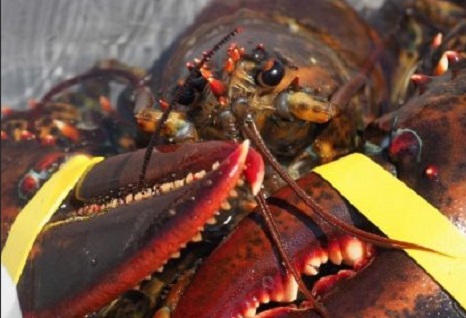
Today is National Lobster Day
In colonial times and in the early years of the republic, lobster was most often eaten by the lower classes, servants, slaves, and apprentices—it was not until much later that it became a delicacy. This was largely because lobster was so plentiful and cheap. European settlers reported they found them washed ashore in piles two feet high. In these early years, they were known as the “cockroach of the ocean,” and prisoners were even known to refuse to eat them. Although Native Americans ate crustaceans, they also commonly used lobster as fertilizer and on fishing hooks. >click to read< 09:39

Canadian Wildfire Season Is Upon Us (A Few Engineering Notes on the Season)
In case you haven’t noticed the smell of burnt flannel and soft wood in the air, it is definitely Canadian fire season. This French fried time of year is accompanied by acrid smoke, heavy fog like conditions, and a feeling of having smoked a pack of non-filtered camels without actually being a smoker. With the ocean looking like the backstage of a Snoop Dogg concert it is time to take stock of a few issues that may occur. By JJ Johnson, photos, >click to read< 18:44
Athearn Marine Agency Boat of the Week: 55’x19′ Wesmac Lobster/Tuna, 803HP Yanmar Diesel, Northern Lights -12 KW
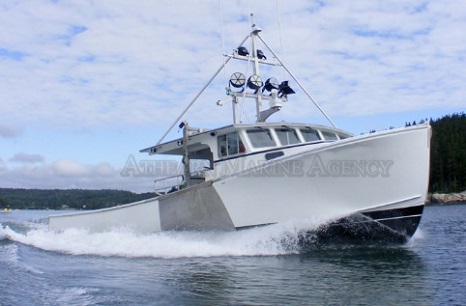 To review specifications, information, and 35 photos’, >click here<, To see all the boats in this series >click here< 12:04
To review specifications, information, and 35 photos’, >click here<, To see all the boats in this series >click here< 12:04
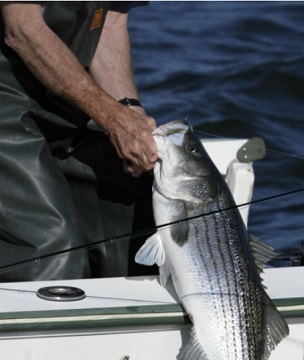
Eastern Shore fisherman pleads guilty to overharvesting, trafficking of striped bass
A commercial fisherman from the Eastern Shore pleaded guilty Monday to violating a federal law by selling striped bass he caught in Virginia waterways in excess of his quota over the course of three years. Keith James Martin, 52, of Saxis, was legally allowed to harvest 4,010 pounds of striped bass per year from 2018 to 2020 under Virginia code, according to a news release from the U.S. attorney’s office for the Eastern District of Virginia. However, in 2018, Martin sold more than 6,700 pounds of striped bass to a Maryland seafood business and more than 4,300 pounds to the same business in 2019, according to the statement of facts filed with the plea agreement. >click to read< 08:33

Maine Delegation, Gov. Mills asks BOEM to listen to fishermen, remove LMA1 from wind power planning
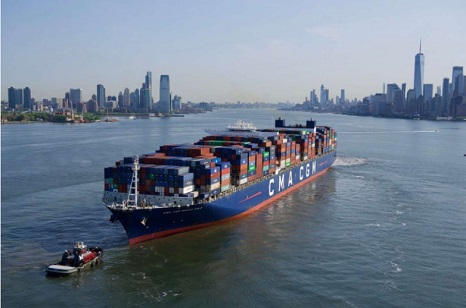
Why are the whales dying? Sea mammal deaths hit record in New York and New Jersey
As whales wash up along East Coast shores at alarming rates, researchers dissect decomposing carcasses, logging whether ship strikes or fishing gear factored into each demise, while some beachgoers wonder if their favorite coastline will be next. At least 14 humpbacks and minke whales have been found dead thus far in 2023 in waters off New York and New Jersey — up from 9 in the entirety of last year. The most recent deaths were two humpbacks, whose corpses were spotted May 31, in Raritan Bay off Keansburg, New Jersey, and Wainscott on Long Island. >click to read< 11:52
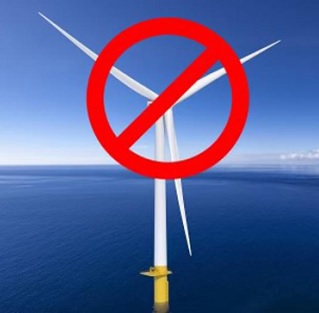
Offshore wind encounters turbulence over NJ
The offshore wind industry’s troubles continue to pile up, not only in New Jersey but in neighboring states along the Eastern Seaboard. On Wednesday, New Jersey Board of Public Utilities President Joseph Fiordaliso, perhaps one of the sector’s biggest advocates, let loose with an uncharacteristic rant at a developer in the emerging industry. Fiordaliso expressed frustration over repeated delays in moving forward with the project. “Your delays are intolerable,’’ he said. As was his custom, he had an offshore wind logo pinned on his suit. “We cannot afford any more delays,’’ Fiordaliso said, adding there are no delays in the pace of climate change. “Some of the things that are being delayed are indefensible.’’ >click to read< 14:30

Pipe Dream: The wind and solar power myth has finally been exposed
Many governments in the Western world have committed to “net zero” emissions of carbon in the near future. The US and UK both say they will deliver by 2050. It’s widely believed that wind and solar power can achieve this. This belief has led the US and British governments, among others, to promote and heavily subsidize wind and solar. These plans have a single, fatal flaw: they are reliant on the pipe dream that there is some affordable way to store surplus electricity at scale. Wind and solar need to be backed up, close to 100 per cent, by some other means of power generation. If that backup is provided by open-cycle gas or worse, coal, net zero will never be achieved: nor anything very close to it. >click to read< 09:02
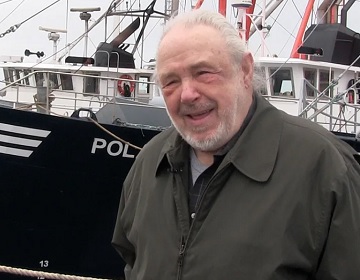
The Emerging American Offshore Wind Industry is Impacting the Community of New Bedford
The Port of New Bedford is home to the wealthiest commercial fishing industry in the country. As the dominant port on the east coast, New Bedford has one of the best industrial working waterfronts with services that completely support marine industrial businesses. Fisherman are concerned that these wind developments will harmfully impact the fishing economy. With commercial fishing at the core of New Bedford’s economy, there are concerns regarding management and maintenance of both industries cohabitating. “I was adamantly opposed to having them offshore, to be honest with you. I don’t feel it’s a good environment for them,” said Captain Jim Kendall, a retired scalloper. “I think it’s going to be real problematic for them, plus it’s parking these towers right where these boats fish.” >click to read< 08:06
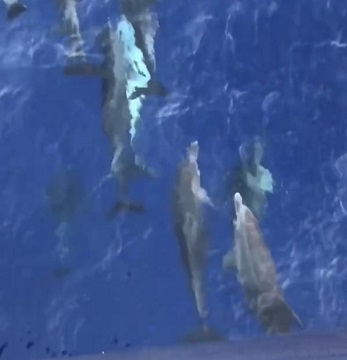
A seismic blasting whistleblower speaks
Hayley had been working on seismic blasting vessels for almost three years when she realised just how destructive the practice was. Her final assessment was simple: “I can’t believe that this is legal.” Hayley, who asked for her real name to not be used, was employed as a marine fauna observer. Her job was to look for marine mammals such as the southern right whale, which could be harmed by the blasts used to search the ocean floor for oil and gas. Blasting would be paused only when specific whales were sighted. The negative impacts of the blasting are hard to see because they happen below the surface. >click to read< 10:16






